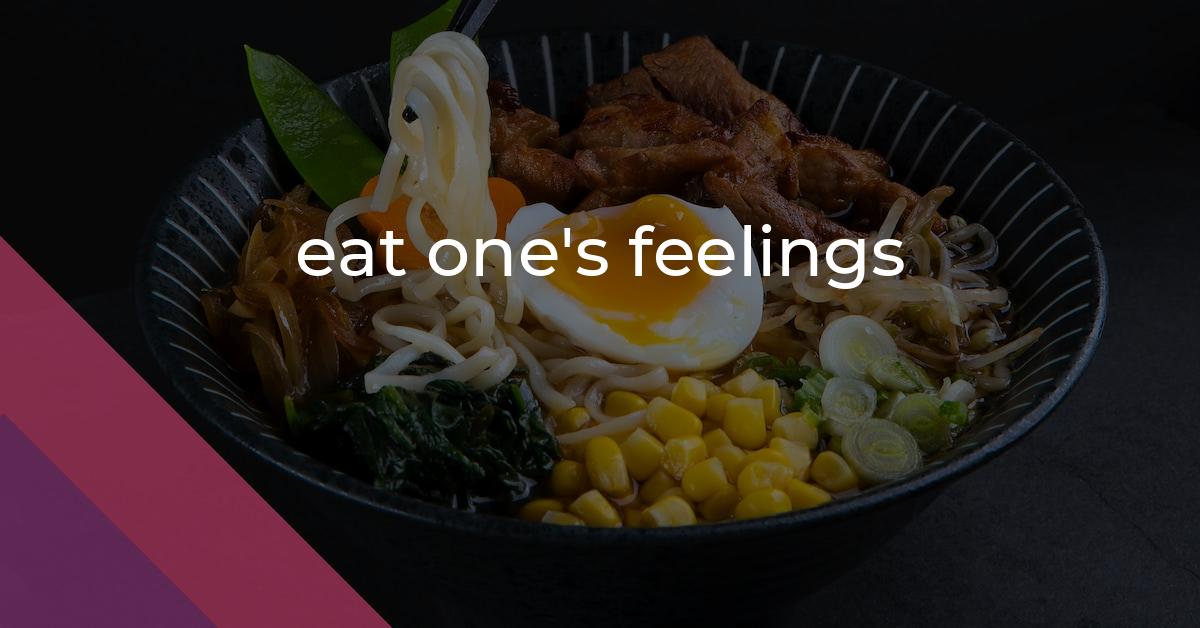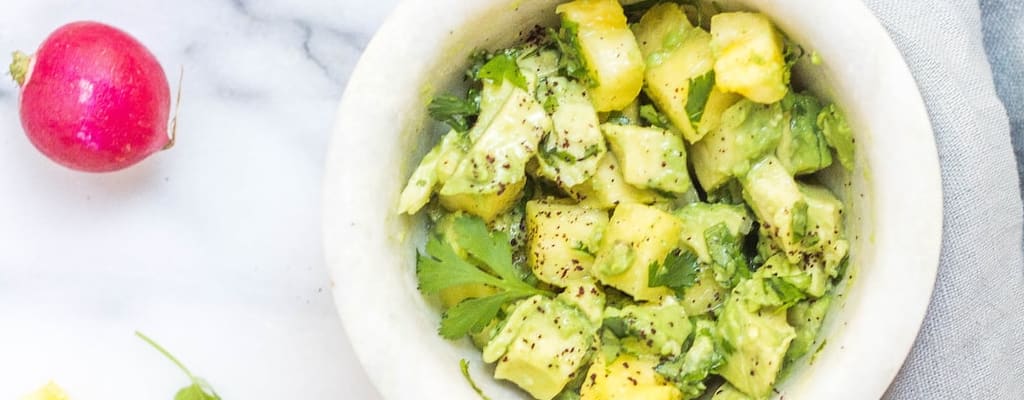eat one’s feelings: Idiom Meaning and Origin
What does ‘eat one's feelings’ mean?
The idiom "eat one's feelings" means to cope with emotions or stress by indulging in comfort food or excessive eating, as a way of temporarily relieving emotional pain or distress.

Idiom Explorer
The idiom "stuff one's face" means to eat a large amount of food quickly and greedily. It implies a lack of self-control or manners when eating.
The idiom "hurt someone's feelings" means to cause emotional pain or upset to someone by saying or doing something that offends or upsets them.
The idiom "have one's cake and eat it too" means wanting to have the benefits of two conflicting choices without making a sacrifice or compromise.
The idiom "have eyes bigger than one's stomach" means to take or desire more than one can actually consume or handle.
The idiom "go with one's gut" means to rely on one's intuition or instinct when making a decision, rather than using logical reasoning or analysis.
The idiom "get one's fill" means to have enough of something or to satisfy one's desire or appetite for something, usually to the point of feeling full or content.
The idiom "fill one's face" means to eat a large amount of food quickly and greedily.
The idiom "feel one's way" means to proceed cautiously or slowly, especially in an unfamiliar or uncertain situation, relying on instinct and experience to make progress.
The idiom "feel oneself" means to feel normal, healthy, or back to one's usual self after a period of illness or discomfort. It suggests a return to physical or emotional well-being.
Indulging in Emotional Nourishment
The idiom "eat it" is a phrase that is used to describe acknowledging defeat or accepting a negative outcome. It is often used in a lighthearted or humorous context to express resignation or humorously admit to being wrong. This idiom is unrelated to the concept of eating one's feelings but is worth mentioning as it shares a similar structure with the idiom "eat one's feelings."
The phrase "eat one's young" is a metaphorical expression that refers to someone destroying or harming their own offspring or creations. It is typically used figuratively to criticize or express disapproval of someone who is undermining their own success or progress. While this idiom is unrelated to the concept of eating one's feelings, it provides an interesting contrast in the literal meaning of the verb "eat" in different contexts.
The idiom "fill one's face" is a colloquial expression that means to eat a large quantity of food. It is often used in an informal or playful manner to describe someone who is indulging in a meal or feast. While it shares the verb "eat" with the idiom "eat one's feelings," it does not carry the same emotional connotation and is therefore unrelated to the concept of emotional eating.
The phrase "stuff one's face" is another informal expression that means to eat a large amount of food without restraint or decorum. It is often used to describe someone who is voraciously consuming food, often without regard for etiquette or social norms. Similar to the idiom "fill one's face," it shares the verb "eat" with the concept of "eat one's feelings," but does not carry the same emotional connotation.
The idiom "bite one's lip" is a metaphorical expression that means to suppress or control one's emotions, typically in a difficult or challenging situation. It is often used to describe someone who is trying to remain composed or hold back their true feelings. While it shares a common verb "eat" with the idiom "eat one's feelings," it conveys a completely different sentiment and is unrelated to the act of emotional eating.
While these idioms provide interesting insights into different uses of the verb "eat" in various contexts, it is important to note that they do not directly relate to or reflect the concept of "eating one's feelings." Each idiom carries its own unique meaning and connotation, highlighting the versatility of language and the ability to convey different ideas using similar words.
The idiom "eat one's feelings" is commonly used to describe the act of using food as a coping mechanism for emotional distress. It signifies the tendency to seek temporary relief or distraction from intense emotions through indulgent eating. While the exact origin of the idiom is unclear, its usage is prevalent in American English and popular culture. It is worth noting that the phrase carries a negative connotation and can be seen as an unhealthy approach to dealing with emotions. It does not provide a long-term solution and may contribute to negative eating habits or weight gain. As a skilled Editor for HubSpot, my role is to edit articles to improve clarity, structure, and style. I follow AP style and adhere to specific rules to ensure that articles are coherent, readable, and effective. By following these rules, I can help enhance the clarity and impact of articles and make them more engaging for our well-informed audience.
Example usage
Examples of how the idiom *eat one's feelings* can be used in a sentence:
- After her breakup, Sarah went to the ice cream shop and ate her feelings.
- Instead of dealing with the stress at work, John decided to eat his feelings and ordered a large pizza.
- Feeling down, Amy bought a box of chocolates and started eating her feelings.
More "Emotions" idioms



